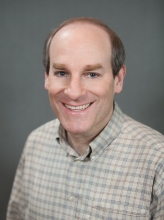By Robert H. Rich, Ph.D., CAE

September was a watershed in Arctic research, with the first-ever White House Arctic Science Ministerial (see my more in-depth article in this issue) taking place in Washington, D.C. Associated with this meeting of high-level government officials from 25 countries, ARCUS provided the primary public forum for the broader Arctic research community to engage with the Ministerial's themes. We worked with the Arctic Portal, the Woods Hole Research Center, Arctic 21 (an ad hoc coalition of non-governmental organizations concerned with climate change in the Arctic), the Consortium for Ocean Leadership, and Columbia University's PoLAR Partnership to hold a day-long event focused on Science, Technology, Engineering, and Math (STEM) education as it relates to Arctic research. Following a keynote presentation by the Executive Director of the U.S. Arctic Executive Steering Committee, Ambassador Mark Brzezinski, we held panels of international experts and officials on how Arctic research can inspire STEM education around the world and on how to improve STEM education and citizen empowerment within the Arctic. A recording of the presentations and discussions is online. Following the panels, our D.C. office also hosted a wide range of hands-on activities, opportunities for educational resources, and other outreach tools that engaged local and national educators, officials, and other stakeholders.
We also have continued to host leading researchers who are traveling to D.C. in our D.C. Arctic Research Seminar/Webinar Series. These events serve both the researchers, policymakers, funders, and thought leaders in D.C. and a global online audience (live and recorded). In September, Dr. Henry Huntington (Pew) shared some key Arctic social science priorities for improved understanding of the complex human dimensions within the region. On 26 October we hosted the seventh of the Seminars featuring Dr. George Divoky who talked about his interesting studies of #Arctic seabirds and what they can tell us about the changing environment. We are always on the lookout for excellent speakers and researchers who will be in D.C. and can present on a timely research topic. Please email me at bob [at] arcus.org if you or someone you know would like to be considered as a future speaker.
In October, I traveled to Akureyri, Iceland and to the Arctic Circle Assembly in Reykjavik, Iceland. Akureyri is a major international Arctic research hub, serving as home to the Arctic Council's working groups on Conservation of Arctic Flora and Fauna (CAFF) and the Preservation of the Arctic Marine Environment (PAME), the Northern Forum, the Arctic Portal, the Icelandic Arctic Cooperation Network, the Steffanson Institute, the University of Akureyri, and (soon) the International Arctic Science Committee (IASC) Secretariat among others. We are delighted to strengthen ARCUS connections with all of these partners and I was honored to be able to speak with the European Polar Board about possible connections and attend the Polar Law Symposium. The Arctic Circle Assembly is the largest meeting on the Arctic each year, with about 2,000 participants. ARCUS organized two breakout sessions there, including a panel on "Essential Science for Informed Decision-Making in the Changing Arctic" and one on "How to Connect with Arctic Research across Boundaries." Both went very well, and more information is available here. It is important for the U.S. Arctic research community to engage with international partners through communication, coordination, and collaboration. The Arctic is a region that cuts across national boundaries, and ARCUS participates in the important conversations to help you to connect.
I'm pleased to report that we are well underway in updating this publication, in order to increase its value to you. We conducted a comprehensive readership survey this summer, which has helped to inform the changes. We expect to roll out the new version of Witness in early 2017, with all of the useful news you've counted on us for about NSF Polar Programs, ARCUS, research results, and efforts of the broader Arctic research and education communities.
As I hope you know, ARCUS is a member-driven organization. Since last fall, all types of organizations and individuals are eligible to become ARCUS members. If you are reading this and share our passion for connecting Arctic research across boundaries, we invite you to become a member at https://www.arcus.org/arcus/member-information.
Finally, please mark your calendars for the ARCUS Arctic research community reception at the American Geophysical Union Fall Meeting. This year, we will be holding the open reception on Wednesday, 14 December from 7:00–8:30 p.m. in the Arctic Community Meeting Room (Foothill E at the Marriott Marquis). You are also invited to observe the ARCUS Annual Meeting from 6:00–7:00 p.m. immediately preceding the reception.
Welcome New ARCUS Members (Since January 2016)
ABR, Inc.-Environmental Research and Services
Alfred Wegener Institute, Hemholtz Center for Polar and Marine Research
EcoAnalysts, Inc
Fairweather Science, LLC
Kepler Communications
Lamont-Doherty Earth Observatory
North Slope Science Initiative
Russian State Hydrometeorological University
The Fletcher School of Law and Diplomacy (Tufts University)
The George Washington University
University of Alaska Anchorage
UiT: The Arctic University of Norway
Ukpeaġvik Iñupiat Corporation (UIC) Science
University of North British Columbia
University of Virginia
Plus 40 new individual members!
